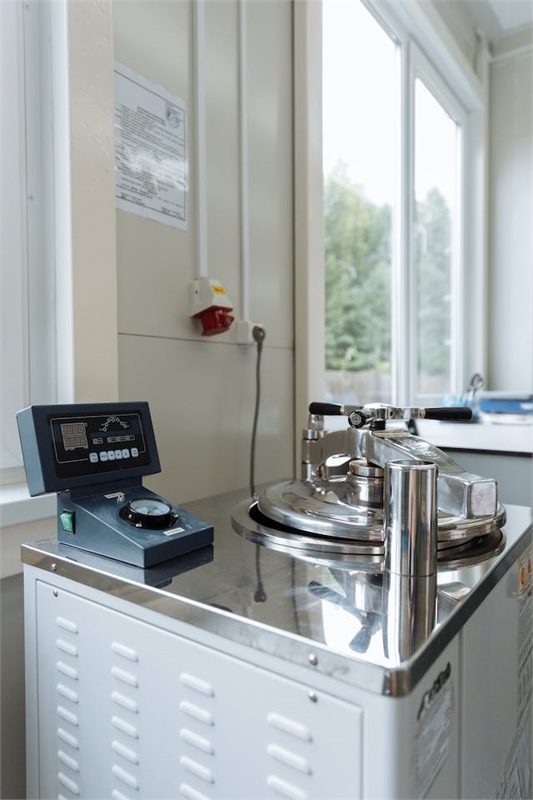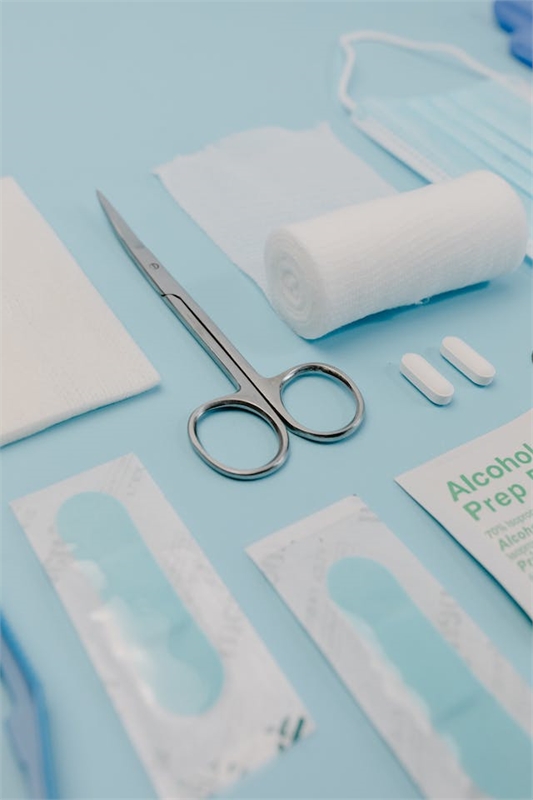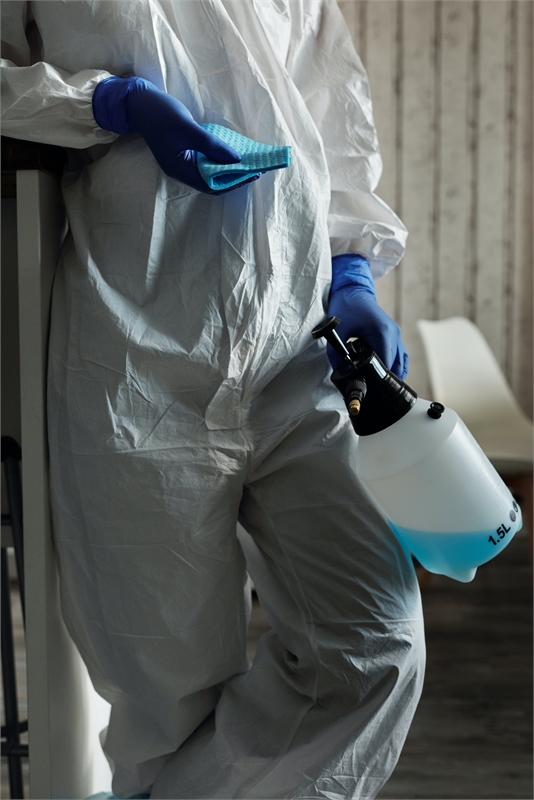Are you looking for a rewarding career in the healthcare field? If so, consider becoming a Sterile Processing Technician. With the demand for healthcare professionals on the rise, this is an exciting time to enter the field. In this article, we will explore the ins and outs of a career as a Sterile Processing Technician and how you can unlock success in this role.
As a Sterile Processing Technician, you will play a crucial role in maintaining the cleanliness and sterility of medical equipment and instruments. Your attention to detail and commitment to quality assurance will ensure the safety of patients and healthcare staff. With the increasing emphasis on infection control, the importance of sterile processing technicians cannot be overstated.
Not only is this career path in high demand, but it also offers great growth potential and job security. Whether you are just starting your career or looking for a change, becoming a Sterile Processing Technician can open doors to new opportunities in the healthcare industry.
So, if you are ready to take the first step towards a fantastic career, read on to discover how to become a Sterile Processing Technician and unlock success in this rapidly expanding field.

The Importance of Sterile Processing Technicians and Job Responsibilities
Some of your key responsibilities will include inspecting, cleaning, and sterilizing medical equipment, as well as assembling and packaging instruments for sterilization. This includes cleaning and sterilizing surgical instruments, endoscopes, and other reusable medical devices. You may also be responsible for maintaining and tracking inventory, as well as following strict protocols for handling and disposing of biohazardous materials.
In addition to cleaning and sterilizing equipment, sterile processing technicians are also responsible for inspecting and maintaining the functionality of medical instruments. They must have a keen eye for detail and be able to identify any defects or damage that may compromise the safety and effectiveness of the equipment.
To excel in this role, you will need to have a strong understanding of infection control principles and be attentive to detail. You must also be able to work efficiently in a fast-paced environment, as the demand for sterile equipment is constant in healthcare settings.
Additionally, communication and teamwork are crucial skills, as you will often collaborate with nurses, surgeons, and other medical professionals to ensure that instruments are prepared and available when needed.
Overall, as a Sterile Processing Technician, you will make a valuable contribution to the healthcare system by helping to prevent the spread of infections and ensuring the safety of both patients and healthcare workers. Your dedication to maintaining the highest standards of cleanliness and sterility will have a positive impact on patient outcomes and the overall quality of healthcare delivery.
The job responsibilities of a Sterile Processing Technician can vary depending on the healthcare facility they work in. However, some common tasks and duties include:
1. Cleaning and decontaminating medical instruments and equipment
2. Operating sterilizing equipment, such as autoclaves and ultrasonic cleaners
3. Inspecting instruments for damage or defects
4. Assembling instrument sets for surgical procedures
5. Maintaining accurate records of sterilization processes and inventories
6. Collaborating with healthcare professionals to ensure proper instrument preparation
7. Adhering to strict infection control protocols and guidelines
Required Education and Certifications for Becoming a Sterile Processing Technician
To start a career as a Sterile Processing Technician, you will need to complete a formal education program. Most employers require a high school diploma or equivalent, although some may prefer candidates with post-secondary education or relevant healthcare experience.
Several institutions offer sterile processing technician programs that can be completed in as little as six months. These programs provide comprehensive training in sterilization techniques, infection control, and medical terminology. Additionally, they often include hands-on experience in a clinical setting, allowing students to practice their skills under the supervision of experienced professionals.
In addition to education, becoming a certified Sterile Processing Technician can greatly enhance your job prospects and earning potential. The Certification Board for Sterile Processing and Distribution (CBSPD) and the International Association of Healthcare Central Service Materiel Management (IAHCSMM) offer certification exams that assess your knowledge and competency in sterile processing. Passing these exams demonstrates your commitment to excellence and professionalism in the field.

Steps to Start a New Career as a Sterile Processing Technician
If you are interested in pursuing a career as a Sterile Processing Technician, here are the steps you can take to get started:
Enroll in a Training Program
1. Research educational programs: Look for accredited sterile processing technician programs in your area. Consider factors such as program length, curriculum, and hands-on training opportunities.
2. Complete the necessary education: Enroll in a sterile processing technician program and successfully complete the required coursework. This will provide you with the knowledge and skills needed to excel in the field.
3. Gain practical experience: Seek out opportunities to gain hands-on experience in a clinical setting. This could include internships, externships, or volunteer positions at healthcare facilities.
Pass the Certification Exam
4. Obtain certification: Consider pursuing certification as a certified registered central service technician (crcst) through organizations such as CBSPD or IAHCSMM. Certification can enhance your job prospects and demonstrate your commitment to professionalism.
5. Prepare your resume and start applying: Once you have completed your education and obtained any necessary certifications, update your resume and start applying for sterile processing technician positions. Be sure to highlight your education, certifications, and any relevant experience.
Job prospects and career growth opportunities
The demand for sterile processing technicians is expected to continue growing in the coming years. As healthcare facilities strive to improve patient care and reduce the risk of infections, the need for qualified professionals in sterile processing will remain high.
Sterile processing technicians can find employment in a variety of healthcare settings, including hospitals, surgical centers, dental offices, and research laboratories. With experience and additional certifications, you may also have the opportunity to advance into supervisory or management roles within the field.
Skills and qualities needed to excel as a Sterile Processing Technician
To excel as a Sterile Processing Technician, you will need a combination of technical skills, attention to detail, and strong interpersonal abilities. Some essential skills and qualities for success in this role include:
- Strong knowledge of infection control principles and practices
- Familiarity with different types of medical equipment and instruments
- Excellent attention to detail and ability to follow strict protocols
- Strong organizational and time management skills
- Effective communication and teamwork abilities
- Manual dexterity and ability to handle delicate instruments
- Ability to work under pressure in a fast-paced healthcare environment

Sterile Processing Technician Salary Expectations and Benefits
The salary of a Sterile Processing Technician can vary depending on factors such as location, experience, and education. According to the U.S. Bureau of Labor Statistics, the median annual wage for sterile processing technicians in 2020 was $38,740, with the highest 10% earning more than $57,010.
In addition to competitive salaries, working as a Sterile Processing Technician offers several benefits. These may include healthcare benefits, retirement plans, paid time off, and opportunities for professional development and advancement.
Continuing Education and Professional Development to Advance Your Sterile Processing Technician Career
To stay current in the field and enhance your professional growth, it is important to engage in continuing education and professional development opportunities. This could include attending conferences, workshops, and seminars related to sterile processing and infection control. Additionally, staying updated on the latest advancements in medical technology and sterilization techniques can help you provide the best possible care to patients.
Organizations such as CBSPD and IAHCSMM provide resources for ongoing education and professional development. They offer webinars, online courses, and publications that can help you expand your knowledge and stay informed about industry trends.
The fulfilling and rewarding career path of a Sterile Processing Technician
Becoming a Sterile Processing Technician can open doors to a rewarding and fulfilling career in the healthcare industry. With the demand for healthcare professionals on the rise, this is an excellent time to start a career in sterile processing.
By ensuring the cleanliness and sterility of medical equipment and instruments, you will play a vital role in maintaining patient safety and preventing the spread of infections. With the right education, certifications, and skills, you can unlock success in this rapidly expanding field and make a positive impact on the lives of patients and healthcare professionals.
So, if you are ready to take the first step towards a fantastic career, consider becoming a Sterile Processing Technician. Start researching educational programs, acquire the necessary certifications, and begin your journey toward a rewarding and fulfilling profession in sterile processing. Your future as a Sterile Processing Technician awaits!